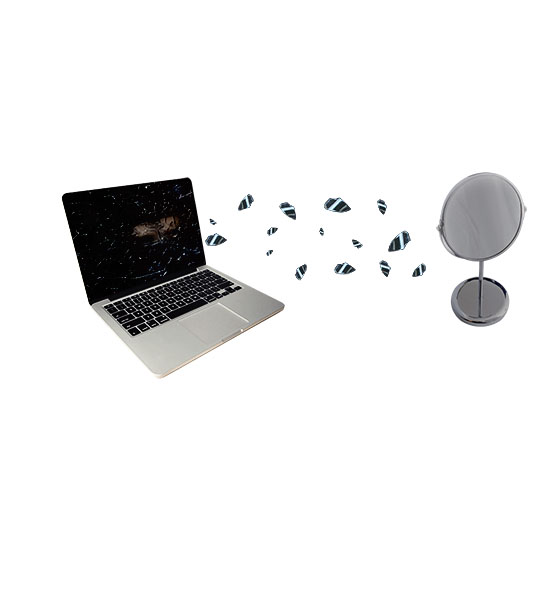Imagine a world where your status depends on a social media score. Or a world where torturing criminals for mass entertainment is the norm. In the Netflix original series “Black Mirror,” these terrifying situations become reality due to technological advancements.
“Black Mirror” is an anthology series that depicts different societies that use futuristic technology, which often ends up hurting humanity rather than helping it.
“The Entire History of You” is an episode where everyone has the option to have a chip installed in their neck. It records everything they look at, making one continuous video. People have access to their memories since the day they were born.
While it seems like this invention can only reap benefits, the episode follows a man who experiences the detrimental impacts of being able to have access to all memories, which raises the question: are groundbreaking technological advancements always good?
The purpose of “Black Mirror” isn’t to tell the audience that advanced technology is bad, but rather, it is to warn its viewers that as society develops technological advancements, it can lose its moral values that shape humanity.
Some episodes don’t necessarily show technology having negative effects on human behavior, but the makers of the show leave it for the audience to decide whether society benefits or is harmed.
In the episode “Be Right Back,” a woman loses her husband, but finds a way to stay in contact with him even after death. The ending of the episode poses the question of whether or not this invention is actually helping people cope with loss.
The series’ storylines seem quite extreme or even impossible. For example, in the episode “Playtest,” a virtual reality becomes too similar to actual reality. Although we wouldn’t imagine this to be possible now, situations such as the one in “Playtest” are possible and somewhat even exist today.
In the episode “Shut Up and Dance,” hackers get hold of footage that is used as blackmail against a teen. The teen has to follow a series of commands, or his life could end. There have been cases of blackmail such as this one in our world today, and the advancement of technology only helps this type of criminal activity grow.
“With every development in technology, there are those who try to use it in an illegal or harmful manner,” Computer Science Department Chair Ralph Mazza said. “The new credit card chip was developed to make your credit card more secure, but there are scanners that will pick up the information from the card just by walking by someone.”
Although the show is fictional, it brings up very realistic possibilities, which is what makes the show enticing.
“Since the beginning of time people have looked for ways to beat the system,” Mazza said. “Short of DNA samples, most everything else can be defeated. On ‘Mythbusters,’ there was a challenge to beat an ‘unbeatable’ security system that required a fingerprint. The manufacturing company said it had never been defeated, and their system could not be cracked. After a few tries, they got the lock to open using a very simple method. So far all electronic devices can be hacked.”
On the contrary, the episode, “San Junipero,” is unique to the series in that it celebrates the potentially positive impacts future technology can have.
The show is quite intense and probably not the best choice when trying to relax and unwind after a stressful day, but it raises awareness on social issues that many may not have considered before. Some give a sense of relief that our society hasn’t resorted to such behavior…at least not yet.
“Technology is always going to be advancing, and people are always going to be taking advantage of it,” senior Kurt Loiseau said.
Advances in technology pose some of the greatest inventions man could ever think of. However, they also pose some of the greatest dangers. As we think of new ways to use technology to increase efficiency in our lives, there are ethical standards that we need to keep in mind.
“An example of how the show relates to the current world is social media because it sets unrealistic standards for people, and the show does a good job of showing that through the episode ‘Nosedive,’” senior Chloe Mourad said.
“Nosedive” is about a society in which people are ranked based on their popularity in social media. Their scores decide what they have access to, whether it be living situations or even the type of car they can drive.
In an age where the use of technology is very prominent in our lives, both at school and at home, we have the responsibility of staying within limits and prioritizing morality. Before we follow the newest advances, we need to stop and question the ethics of using said technology and the impact it will have on us.




